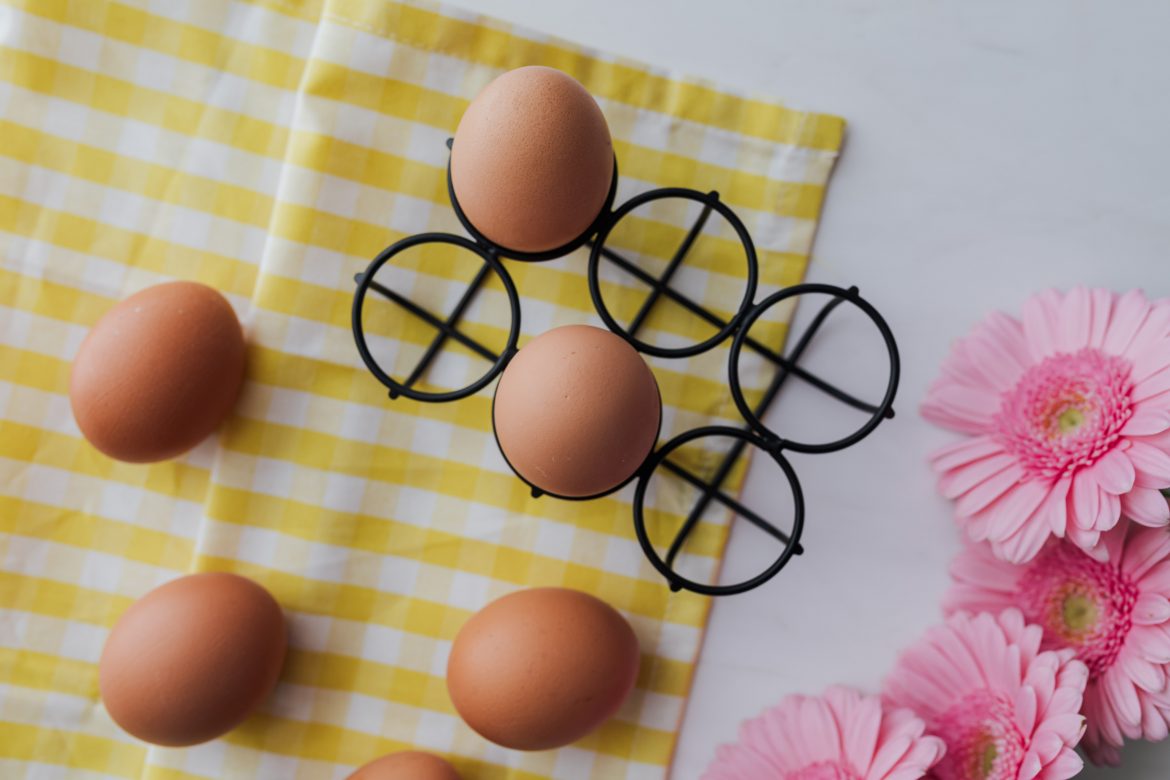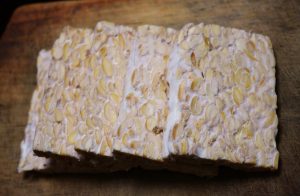How to tell if eggs are bad? This is a conundrum that many people face. Eggs are a staple for most households and people purchase them by the dozen, but can you really trust the expiration date on those packages? It’s no secret that the quality of an egg declines with time. As the air pocket inside it gets bigger, the whites also get thinner.
Unless there are tell-tale signs such as mold or discoloration, it’s actually difficult to tell when an egg is no longer fresh. Remember, not all bad eggs give off a rotten smell. Here’s how to tell if eggs are bad.
How Long Do Eggs Last?
First off, while eggs last longer when stored properly in the fridge, this varies depending on its current state. If you have cracked it open, you have potentially introduced bacteria that will cause it to spoil faster. Here’s what you need to keep in mind.
How Long Do Eggs Last In The Fridge At 35°F to 40°F
- Whole eggs in shell: These should last for up to three weeks after it was bought and four weeks beyond its pack date.
- Beaten eggs: These will last for two days unless you’ve added other ingredients to it.
- Raw yolks: These will last two days.
- Egg whites: These will last four days.
EGG TRIVIA:
Did you know that raw egg whites and raw egg yolks can be kept for over a year if you keep it in the freezer at 0°F or colder? That said, its flavor might not be as good as fresh eggs.
Hard Boiled: How To Tell If An Egg Is Good Or Bad
Food that has gone bad will not always have physical markers. The same can be said when it comes to hard boiled eggs. They might look edible, but you’ll only realize your mistake after you’ve taken a few bites. Sometimes, the ill effects wouldn’t even manifest until hours later!
This is important if you’re the type to hard-boil a lot of eggs ahead of time. Since they do take a fair bit of time, most people do this in order to cut down on prep. However, this is where things can get a little complicated. While sitting on the counter, hard boiled eggs can begin to go bad.
How long do hard boiled eggs last unrefrigerated?
Experts say they can only last for a day. If already peeled, these will only last for about two hours.
The Risks Of Eating Bad Hard Boiled Eggs
When left at room temperature for hours, bacterial growth increases. This can ultimately lead to salmonella.
It’s worth noting that one of the most common risks associated with rotten eggs is salmonella. Its symptoms can last anywhere between four to seven days, and may even contaminate other food items that were not properly handled. Severe cases of salmonella infection will require a trip to the hospital, so do be wary of this.
Even when refrigerated, always double check for signs of spoilage or changes in texture. The formation of mold or a mushy yolk can indicate that it’s already expired.
Eggs Expiration Date: What You Need To Know
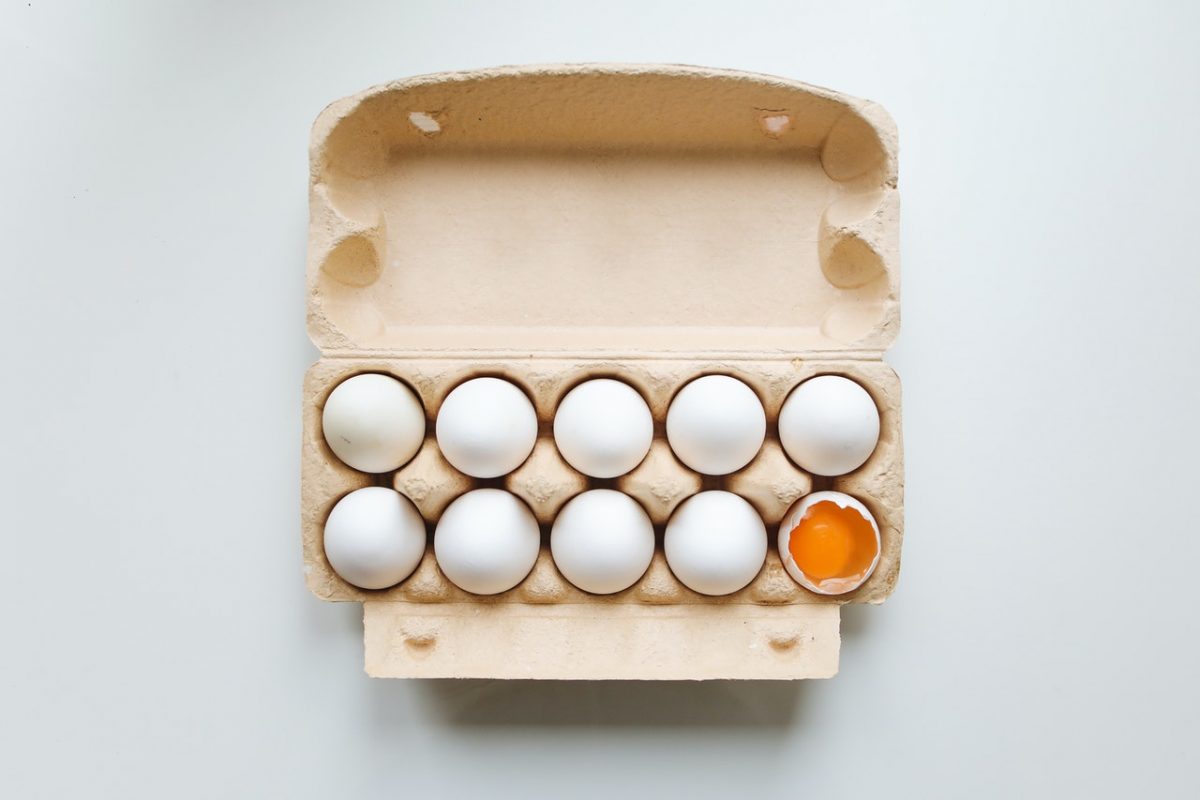

Cracking the expiration code on your carton of eggs can be a tricky process. Multiple sources online will offer you varied information, making the process even more tedious. According to the U.S. Department of Agriculture Food and Safety Inspection Service, understanding what the printed code on egg cartons or on the egg itself is important. These would help you determine just how fresh each batch is before you make the purchase.
These codes pertain to:
- The date of packaging
- The processing plant number
- Expiration date
If you’re looking to determine their freshness, check for the pack-date calendar. This is the three-digit code that uses a Julian date to tell you the exact date it was packed. For example, January 1 will appear as 001, while December 31 will appear as 365.
That said, you will be able to store your fresh shell eggs in the fridge for up to five weeks beyond the pack-date.
How Long Are Eggs Good After The Sell Date?
When buying eggs, always look at the EXP or sell by date printed on the carton. Upon getting home, place your eggs in the fridge immediately. Keep them in the carton, but store them in the coldest part of your fridge. Don’t keep the eggs on the door shelf.
How long do eggs last after you buy them? Eggs will remain viable within five weeks after purchase. The sell by date usually expires within those five weeks, but do know that the eggs are still safe to consume past it.
Can’t find a sell by date on your egg carton?
This is because having the sell by date or EXP code on cartons isn’t federally required. Do note that this law varies per state.
How To Tell If Eggs Are Bad: Eight Simple Egg Tests
Don’t want to rely on the codes on your egg carton? Fret not. There are other ways of checking if your eggs have gone bad. Try any of the options below:
The Good Old-Fashioned Egg Sniff Test


Not all rotten eggs will smell bad, but eight out of ten times they will give off a foul smell. Here’s how you can tell:
- Before even cracking the egg, take a sniff. If it’s already bad, you should be able to get a whiff of a sulfur-like smell.
- How to tell if eggs are bad after cracking? If you want to be doubly sure, pour out the contents into a bowl and give it a sniff. The rotten smell should be present along with possible discoloration.
- Make sure you thoroughly clean the plate or bowl before using it for anything else. This will prevent any potential contamination.
The Egg Float Test
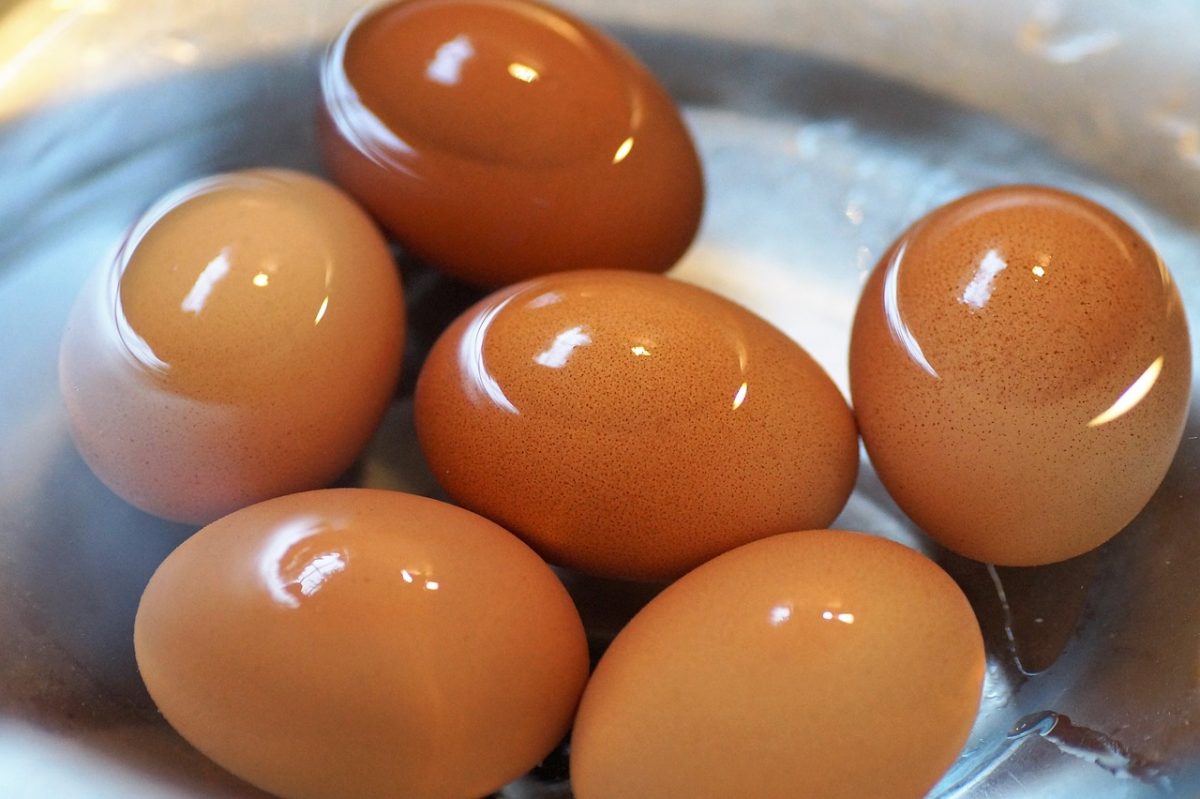

This is one of the most commonly used methods given its simplicity and accuracy. The science behind it? Since eggshells are porous, it allows for the liquid inside to evaporate. It will slowly be replaced by air, which makes the egg float in water. Basically, fresh eggs will sink, and bad eggs will float to the top.
To do this egg water test:
- Take a large bowl and fit it with cold water. Carefully place your eggs in it.
- When the eggs sink and lay flat on their sides, it means they are very fresh.
- If they stand one end at the bottom, they’re a few weeks old but still viable.
- Should the egg float to the surface, this means they’re no longer fit for consumption.
The Egg Sound Test


The name might be funny, but it’s also an efficient way of telling which eggs are still good to eat. To do this:
- Hold up the egg close to your ear and give it a good shake.
- If you don’t hear any sloshing sounds from inside it, then it’s likely still fresh.
- The sound of liquid moving inside indicates that the egg has gone bad.
The Egg And Flashlight Test
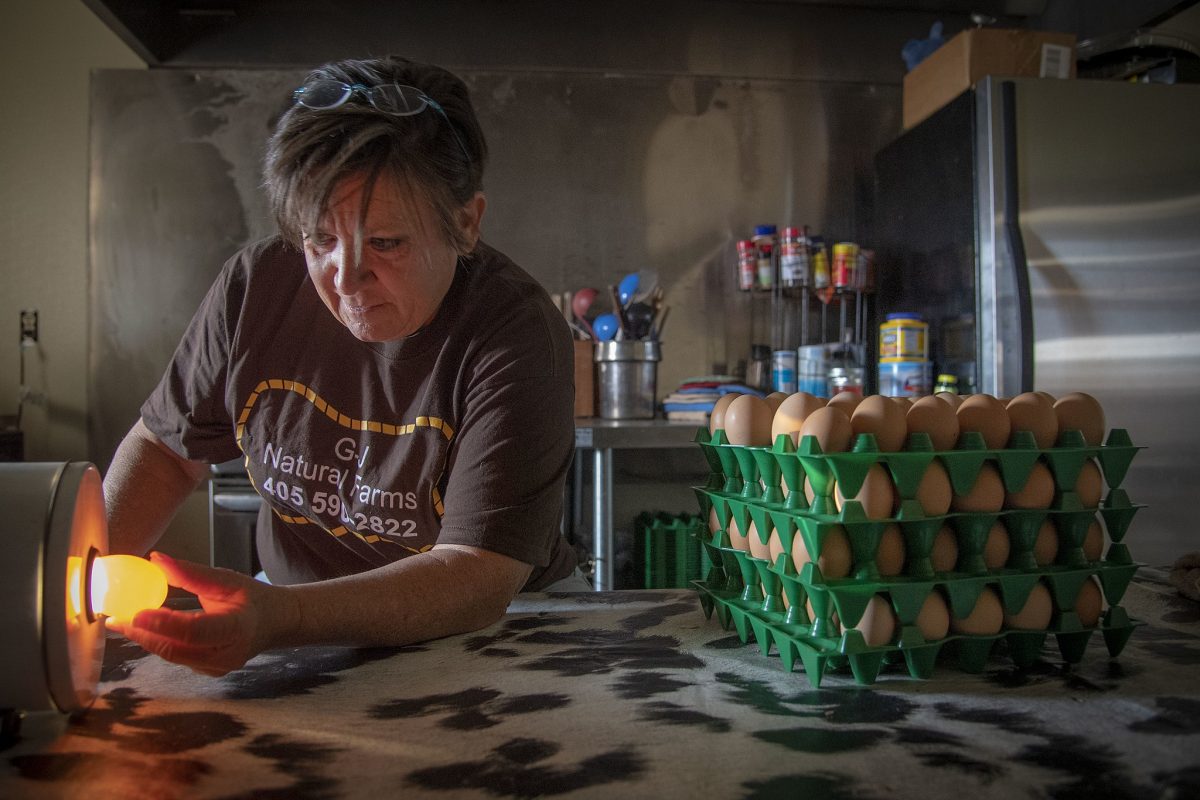

How to tell if eggs are bad? This is one of the most fun methods you can use. Did you know that this is commonly used in many chicken farms as well? It helps them determine the freshness of a regular egg, as well as to check how a chick is developing inside a fertilized one!
Here’s what you need to do:
- Go into a dark room. Bring a flashlight with you.
- Hold your light source up to the larger end of your egg.
- Carefully, tilt it before turning it from left to right. This might take you a few tries.
- Next, find the egg’s air cell. Look for the translucent section of the shell.
- With fresh eggs, this air cell would be quite thin.
- If the air cell appears large, it means the egg is no longer fresh.
Visual Check: Discoloration And Unusual Marks
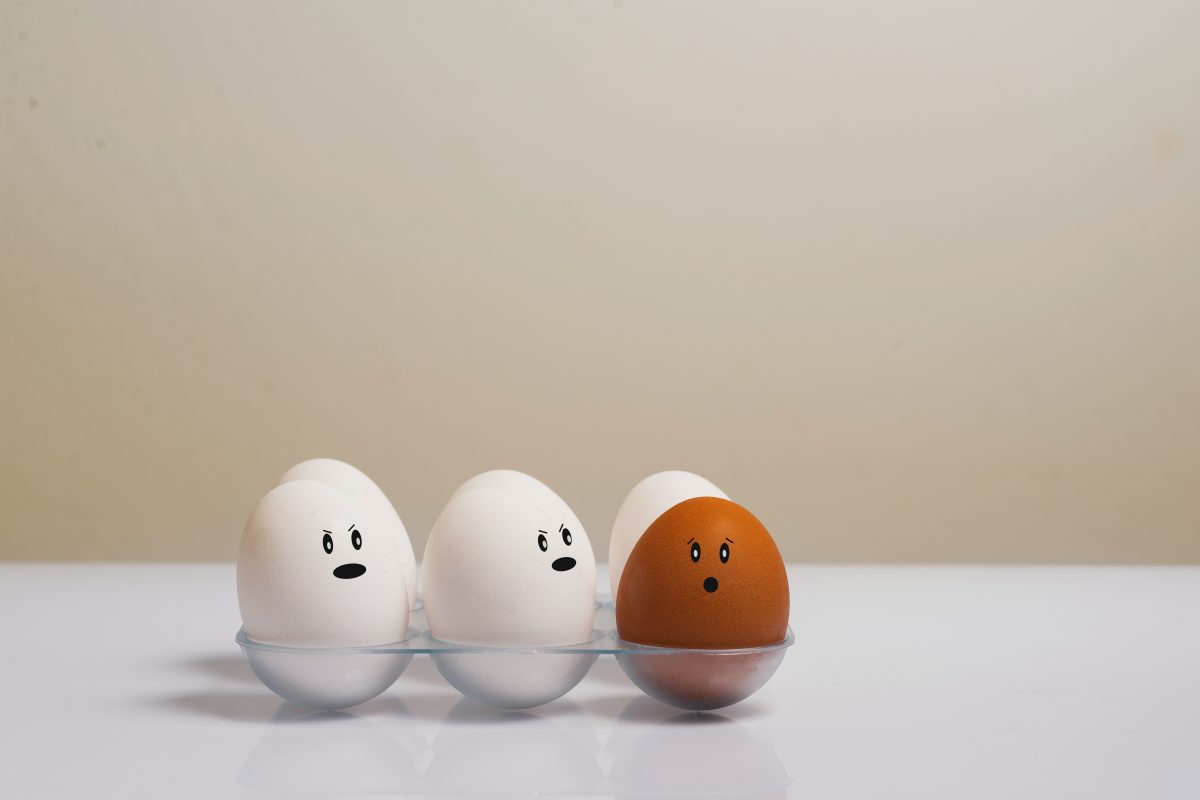

How to tell if eggs are bad? Use any physical changes on it to check. While the egg is still inside its shell, look for: cracks, powdery residue, and sliminess. These can indicate the presence of bacteria and mold, which means the egg is longer suitable for consumption.
If there are no markers on the eggshell, crack it open and transfer the contents to a white bowl. Look for any discoloration in the whites and the yolk. Black, pink, green, and blue residue are indicators of bacterial growth.
Watery Egg Whites And Yolks
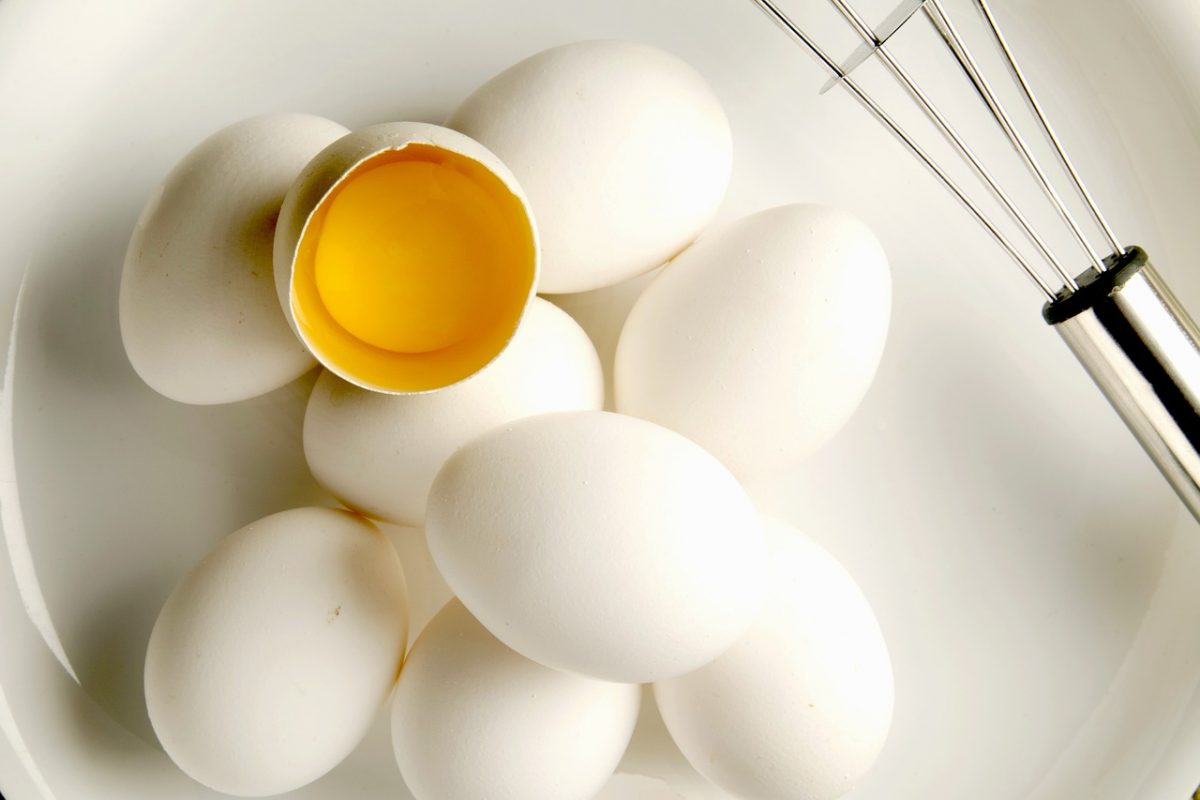

This is a great indicator when it comes to the quality of the egg. It doesn’t always mean that the egg has gone bad, however. Instead, it means that the quality of the egg has declined and it must be consumed as soon as possible.
Black Or Green Spots On Hard Boiled Eggs
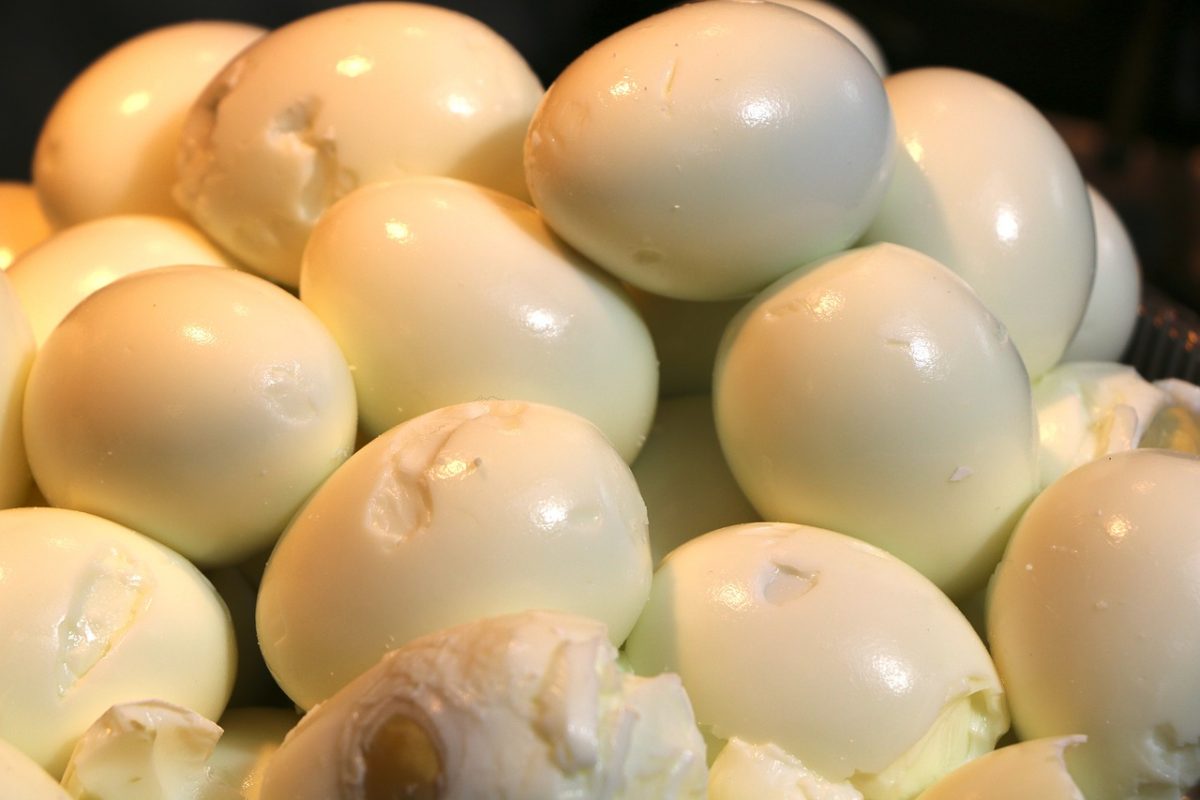

How to tell if hard boiled eggs are bad? Aside from its unappetizing texture, you’re likely to find spots all over it as well. The most common ones are produced by mold and will be black or green in color. You might be tempted to remove those spots and still eat the egg, but refrain from doing so! The presence of bacteria is an indication that the egg is already contaminated. You will be risking food poisoning if you still consume it.
Unusually Flat Egg Yolks
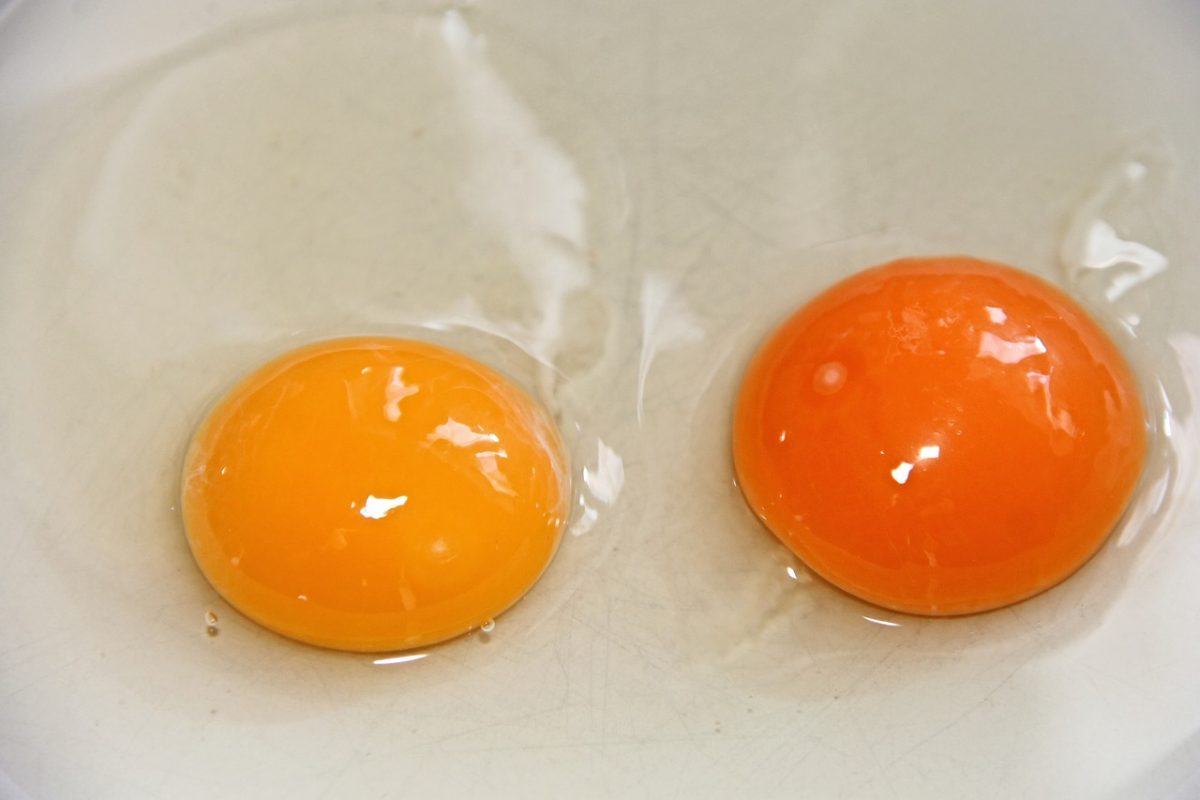

By looking at its yolk, how to tell if an egg is good? If it’s bulbous even after you’ve placed it on the frying pan. An egg that has gone bad would have a very flat yolk. Coupled with egg whites that have become very runny, you’ll know it’s time to throw it out.
Tips On How To Properly Store Eggs
You may not be able to keep your eggs stored for months, but there are ways of making sure they stay good for as long as possible. How long do eggs last? It all begins with how you store them.
- Always keep the eggs in their carton. Most people would throw this away and use the fridge egg caddy to hold them instead. This might seem like the proper way of doing things, but it’s actually not recommended. Why? The original carton was specifically designed to protect the eggs. It keeps the eggs from absorbing other flavors and odors inside your fridge. Remember, eggshells are porous!
- Store your eggs with the larger end up. By doing this, you’ll help keep the yolk centered.
- How long do hard boiled eggs last unrefrigerated? A day at most. This is why you need to keep your hard boiled eggs, whether they’ve been peeled or not, inside the fridge. Doing so prolongs their usability by up to a week!
- Got a tray of eggs that’s near the expiration date? Keep these from going to waste by pickling them. While fresh eggs are always best for this purpose, you can still prolong their usability by up to a month. Our recommendation? This easy to follow recipe from Spend with Pennies.
- Don’t wash your eggs before storing them. By doing this, you can actually drive surface bacteria right through the pores of the eggshell. Instead, dry clean them by using cloth. Gently rub the surface before storing them inside your fridge.
- If you have leftover egg whites and yolks, store these in airtight containers. Doing so will prevent any bacteria from spoiling it. Don’t forget to store them in the freezer as soon as possible.
- Worried about a gassy smell permeating your refrigerator? This is caused by hydrogen sulfide. It happens when you store hard boiled eggs. While it may not be pleasant, it is also harmless.
- Lastly, make sure that you clean out previous egg containers. Use water and soap each time. Doing this will prevent cross contamination, especially if you handled spoiled eggs previously. This applies even if you’re storing eggs that still have their shells. The safer, the better.
Remember, eggs can last for a good length of time if you store them properly. Not only will you be avoiding food waste, you’ll also make sure that your eggs are safe for consumption. Try use our simple egg hacks on how to tell if eggs are bad to make sure that you’re feeding yourself and your family the freshest produce.

